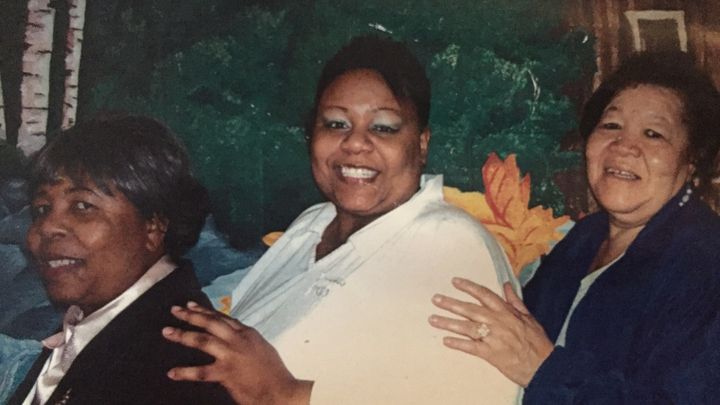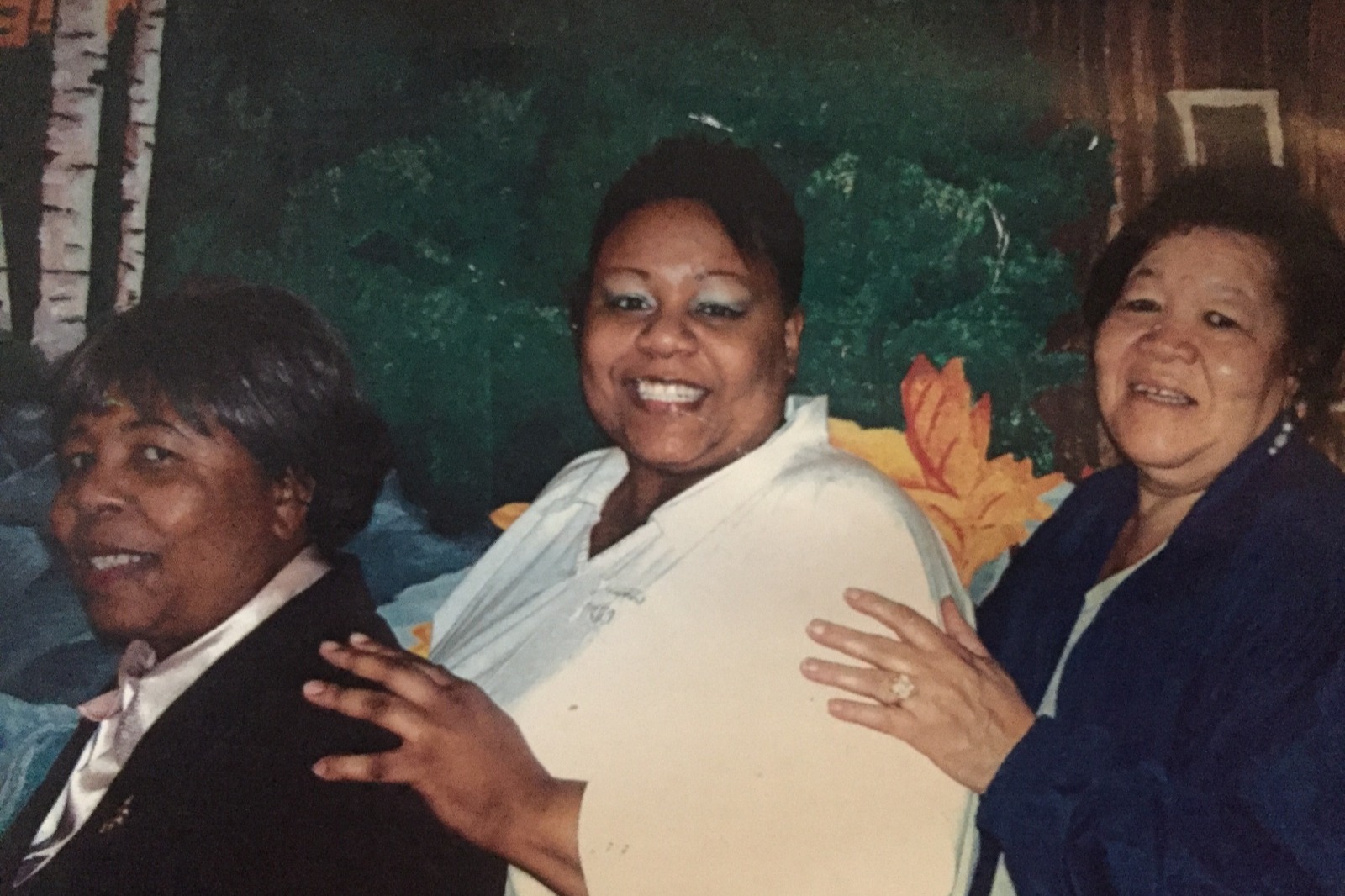
Faye Jacobs is Free
Donation protected
At just 16 years old, Laquanda "Faye" Jacobs was convicted of a crime she did not commit and sentenced to life without parole. Now, over 26 years later, she walks free after receiving a new sentence. Unfortunately, because she is no longer incarcerated, Faye can no longer challenge her conviction in the courts—and she is not entitled to any compensation or any resources to begin anew.
Faye served over half her life incarcerated. Although free, she will face significant hurdles as both a child who grew up in prison since she was 16 years old, and most importantly, because of her status as a felon. As a felon, Faye's job and educational opportunities are incredibly restricted, opportunities all the more important for someone like herself, who enters the world with no job history, no residential history, no credit, and no resources.
You can help. Support Faye’s re-entry and help her begin the bright future that should always have been hers.

The Crime
On the evening of February 9th, 1992, in Little Rock, Arkansas, local police picked up teen-aged Faye outside her home for questioning in the case of an aggravated robbery and shooting that occurred earlier that afternoon. Though witnesses had described the shooter as in her thirties, with scars under her eyes, and wearing black pants and a black coat, 16-year-old Faye was arrested while still wearing the white dress she’d worn to church that morning.

In addition, five eyewitnesses to the shooting state that Faye was not the shooter, however, a jury never heard their testimony because her defense attorneys never investigated and never spoke with any witnesses. Instead, Faye was convicted based on the testimony of the State's two witnesses. The first witness was an incentivized witness, who only came forward after being picked up on charges of his own several weeks later. He has since recanted his identification. The State’s second witness was a traumatized teenager who did not identify Faye when presented with her photo on two separate occasions, only providing her name when he heard it from others. Social science now confirms that such procedures increase the risk of eyewitness misidentification—a leading cause of wrongful convictions nationwide, playing a role in more than 75% of convictions overturned through DNA testing.
Additionally, Faye received woefully inadequate counsel. The lawyers appointed to defend Faye on her charge of capital murder conducted no investigation and never even asked the State for discovery (the information in the State’s file). As a result of their ineffectiveness, the jury did not hear from five eyewitnesses to the crime, all of whom stated that Faye was not the perpetrator. Without this information, a jury convicted Faye convicted of capital murder and she was sentenced to life without parole. She was just sixteen.
The Appeals
The Midwest Innocence Project joined Faye’s case in 2014, working to secure her both a new sentence and a new trial. Two years earlier, in 2012, the United States Supreme Court ruled in Miller v. Alabama that kids cannot be sentenced mandatorily to life without parole, and those who had been are entitled to a new hearing. Because Faye had received such a sentence, she was entitled to a new sentencing hearing where a jury would consider Faye’s background and character, her work in prison, her ability to be rehabilitated, and her role in the crime. Faye's story was featured in The Nation .
In addition, MIP and the law firm of Lathrop & Gage filed a federal habeas petition seeking to overturn her conviction on May 11, 2018 based upon newly discovered evidence of her innocence. However, before that petition could be heard by a court, Faye was resentenced on July 16, 2018. As a result, she walked out of prison—free, but not exonerated.
Because she is no longer incarcerated, Faye can no longer prove her innocence in the courts. Instead, she must seek a pardon from Arkansas Governor Asa Hutchinson. You can also support her by signing the petition asking Gov. Hutchinson to pardon her conviction.
The Midwest Innocence Project is a non-profit organization located in Kansas City, MO working for the release of individuals who have been wrongfully incarcerated. Faye Jacobs is a client of the Midwest Innocence Project and they have created this campaign to help raise necessary funds to support her life after 26 years in prison. All proceeds go directly to Faye and the funds will help support her with everyday vital expenses like rent, food, utilities, clothes, transportation, etc. Any amount helps!
Faye served over half her life incarcerated. Although free, she will face significant hurdles as both a child who grew up in prison since she was 16 years old, and most importantly, because of her status as a felon. As a felon, Faye's job and educational opportunities are incredibly restricted, opportunities all the more important for someone like herself, who enters the world with no job history, no residential history, no credit, and no resources.
You can help. Support Faye’s re-entry and help her begin the bright future that should always have been hers.

The Crime
On the evening of February 9th, 1992, in Little Rock, Arkansas, local police picked up teen-aged Faye outside her home for questioning in the case of an aggravated robbery and shooting that occurred earlier that afternoon. Though witnesses had described the shooter as in her thirties, with scars under her eyes, and wearing black pants and a black coat, 16-year-old Faye was arrested while still wearing the white dress she’d worn to church that morning.

In addition, five eyewitnesses to the shooting state that Faye was not the shooter, however, a jury never heard their testimony because her defense attorneys never investigated and never spoke with any witnesses. Instead, Faye was convicted based on the testimony of the State's two witnesses. The first witness was an incentivized witness, who only came forward after being picked up on charges of his own several weeks later. He has since recanted his identification. The State’s second witness was a traumatized teenager who did not identify Faye when presented with her photo on two separate occasions, only providing her name when he heard it from others. Social science now confirms that such procedures increase the risk of eyewitness misidentification—a leading cause of wrongful convictions nationwide, playing a role in more than 75% of convictions overturned through DNA testing.
Additionally, Faye received woefully inadequate counsel. The lawyers appointed to defend Faye on her charge of capital murder conducted no investigation and never even asked the State for discovery (the information in the State’s file). As a result of their ineffectiveness, the jury did not hear from five eyewitnesses to the crime, all of whom stated that Faye was not the perpetrator. Without this information, a jury convicted Faye convicted of capital murder and she was sentenced to life without parole. She was just sixteen.
The Appeals
The Midwest Innocence Project joined Faye’s case in 2014, working to secure her both a new sentence and a new trial. Two years earlier, in 2012, the United States Supreme Court ruled in Miller v. Alabama that kids cannot be sentenced mandatorily to life without parole, and those who had been are entitled to a new hearing. Because Faye had received such a sentence, she was entitled to a new sentencing hearing where a jury would consider Faye’s background and character, her work in prison, her ability to be rehabilitated, and her role in the crime. Faye's story was featured in The Nation .
In addition, MIP and the law firm of Lathrop & Gage filed a federal habeas petition seeking to overturn her conviction on May 11, 2018 based upon newly discovered evidence of her innocence. However, before that petition could be heard by a court, Faye was resentenced on July 16, 2018. As a result, she walked out of prison—free, but not exonerated.
Because she is no longer incarcerated, Faye can no longer prove her innocence in the courts. Instead, she must seek a pardon from Arkansas Governor Asa Hutchinson. You can also support her by signing the petition asking Gov. Hutchinson to pardon her conviction.
The Midwest Innocence Project is a non-profit organization located in Kansas City, MO working for the release of individuals who have been wrongfully incarcerated. Faye Jacobs is a client of the Midwest Innocence Project and they have created this campaign to help raise necessary funds to support her life after 26 years in prison. All proceeds go directly to Faye and the funds will help support her with everyday vital expenses like rent, food, utilities, clothes, transportation, etc. Any amount helps!
Organizer and beneficiary
Midwest Innocence Project
Organizer
Kansas City, MO
LaQuanda Jacobs
Beneficiary